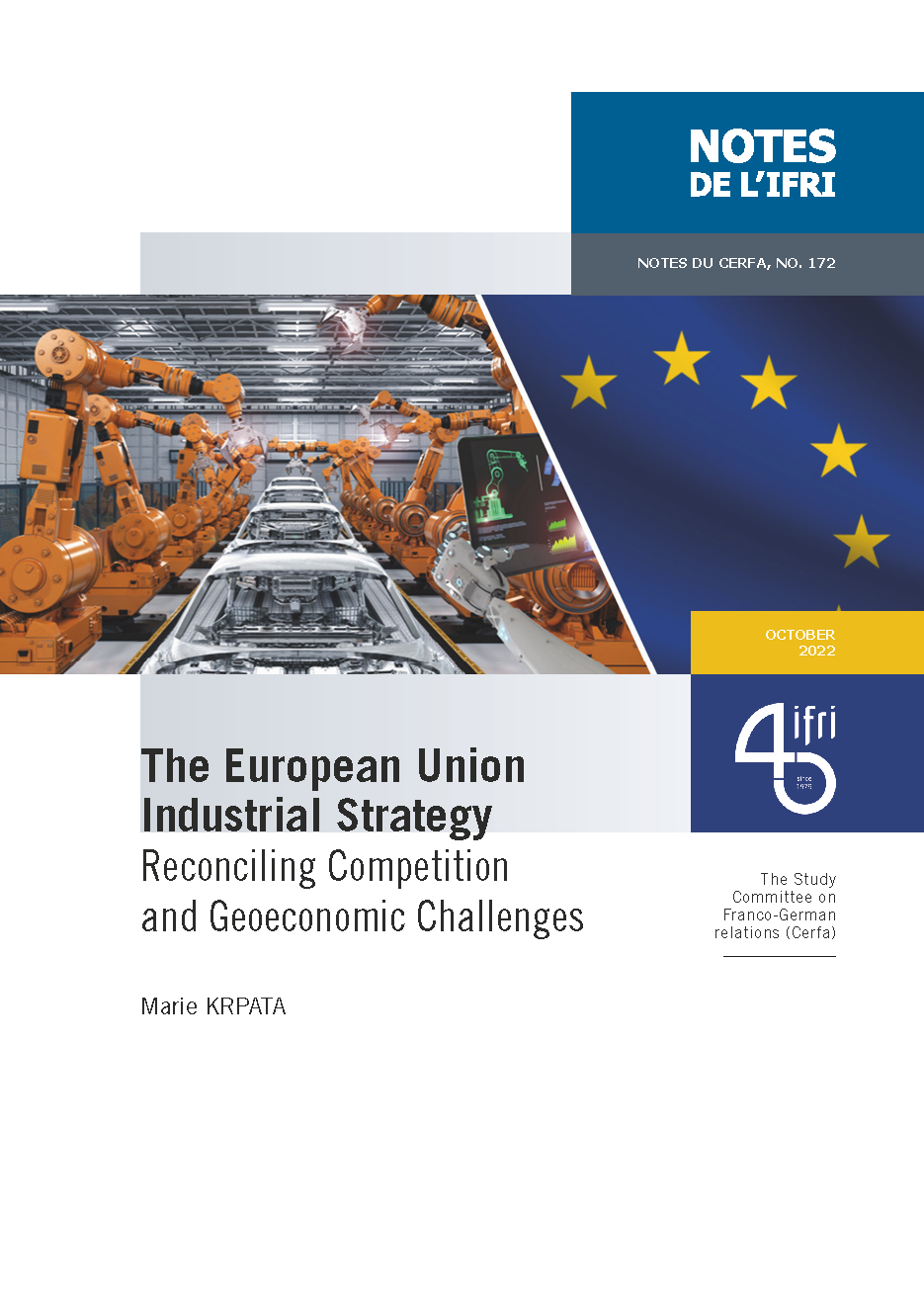The European Union Industrial Strategy: Reconciling Competition and Geoeconomic Challenges

The EU’s basic assumptions, on which it grounds its economic and trade power, are being steadily cast into doubt. The EU’s main trade partners, the US and China, increasingly set their sights on securing their supply chains, which may further a potential decoupling.

This shift is likely to be accelerated in the context of growing geopolitical instability. Multilateralism and international trade principles are increasingly challenged by a weakening of international institutions and the recourse to asymmetric market practices, while technological leadership will be key in the struggle for global leadership. Being fundamentally built on economic openness, the EU is comparatively ill-equipped to respond to these developments. Its biggest economy, Germany, is prompted to assert itself if it does not want to lose in competitiveness. While the EU is developing strategies, policies, and instruments to adapt to this change of circumstances and increase its resilience, a shift in mentalities, leaving behind political and economic short-term interests, will be necessary.
Marie Krpata works as a Research Fellow at the Study Committee on Franco-German Relations (Cerfa) at the French Institute of International Relations – Ifri where she dedicates her research activities to the European Union and the external relations of the Franco-German couple. Before joining the Cerfa she worked in non-governmental and international organizations as well as in consultancies.
Download the full analysis
This page contains only a summary of our work. If you would like to have access to all the information from our research on the subject, you can download the full version in PDF format.
The European Union Industrial Strategy: Reconciling Competition and Geoeconomic Challenges
Related centers and programs
Discover our other research centers and programsFind out more
Discover all our analysesThe Franco-German Brigade and the Revival of European Defense
One thing has been clear since Donald Trump's return to the White House: the very existence of the European unification project is threatened. Unless it develops a sovereign defense policy to counter the war in Ukraine and the weakening of American security guarantees, the European Union will continue to see its internal cohesion and external attractiveness wane.
Friedrich Merz and the Zeitenwende 2.0. A “New Era” for Transatlantic Relations?
On February 23, 2025, almost 60 million voters were called upon to elect a new Bundestag. These elections will also give rise to a new government in Europe's largest economy.
After the Elections: Germany in Search of Shaken Stability?
With a voter turnout of 82.5%, Germany recorded its highest participation since 1987—an increase of 6.1 percentage points compared to 2021. As in the previous election, the high turnout particularly benefited the Alternative for Germany (AfD), which was able to mobilize many former non-voters. Many voters sought to punish the outgoing government with their ballots, as its approval rating had dropped to just 14% before the coalition broke apart in November 2024. Germany is now very likely heading toward a grand coalition between the CDU/CSU and the SPD, with exploratory talks having begun on February 28.
The German Greens as an Alliance Party: The End of an Illusion?
At the Wiesbaden Congress in November 2024, Robert Habeck, currently Minister for the Economy and Climate, was nominated as the Green Party’s candidate for the Chancellorship in the early parliamentary elections on February 23, 2025. The party, founded 45 years ago, is now firmly established in the German political landscape. Wishing to turn the page on an unloved ‘‘traffic light’’ coalition, the party is banking on a personal campaign and an optimistic discourse based on the energy transition and social justice.











